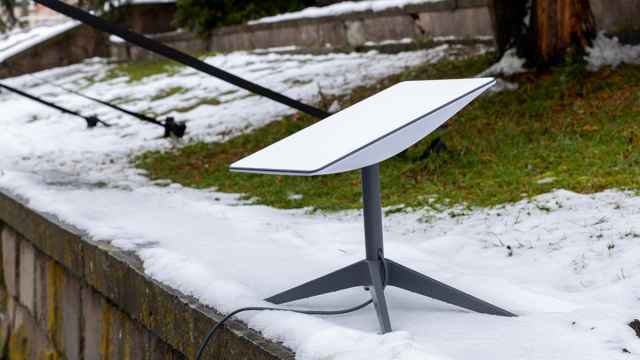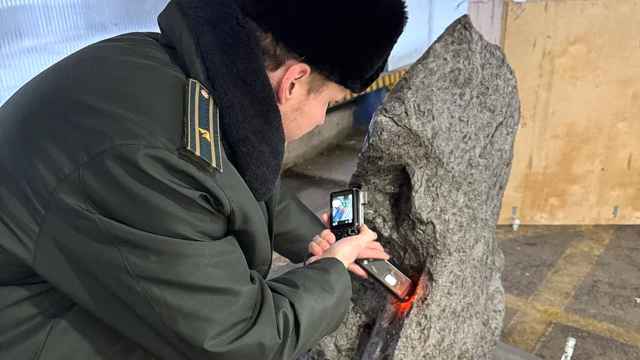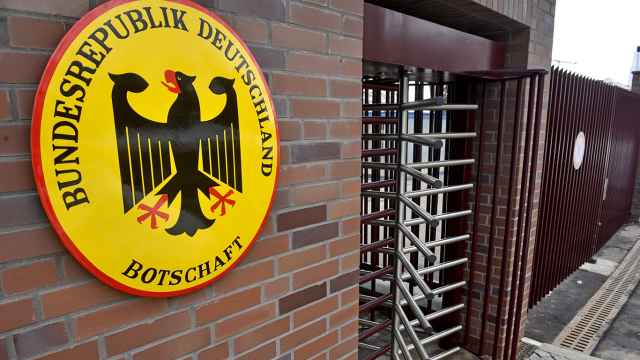| About this blog
|
| Window on Eurasia covers current events in Russia and the nations of the former Soviet Union, with a focus on issues of ethnicity and religion. The issues covered are often not those written about on the front pages of newspapers. Instead, the articles in the Windows series focus on those issues that either have not been much discussed or provide an approach to stories that have been. Frequent topics include civil rights, radicalism, Russian Islam, the Russian Orthodox Church, and events in the North Caucasus, among others.
Author Paul Goble is a longtime specialist on ethnic and religious questions in Eurasia. Most recently, he was director of research and publications at the Azerbaijan Diplomatic Academy. He has served in various capacities in the U.S. State Department, the Central Intelligence Agency and the International Broadcasting Bureau as well as at the Voice of America and Radio Free Europe/Radio Liberty and at the Carnegie Endowment for International Peace. He writes frequently on ethnic and religious issues and has edited five volumes on ethnicity and religion in the former Soviet space. |
This year, as in every year since Gorbachev's time, there has been the usual discussion on whether Lenin should be removed from the mausoleum and buried, as supposedly was not only his wish but that of his family, with a growing number of Russians saying that they are willing to support or at least not oppose such an action if the government takes it.
But one statement this year, by Archpriest Dimitry Smirnov, head of the Moscow Patriarchate's Department for Relations with the Armed Forces and Security Services, deserves particular attention because his words likely reflect the views of many in the Church leadership and because they could lead to a break between the church and some Russian nationalists.
Queried by the Rusk.ru portal, which has close ties with the Patriarchate, about what should be done with Lenin's remains, Archpriest Dimitry said that "the time for burying Lenin arrived already in April 1870." Indeed, the Church official said, "it would have been better if this bastard had never been born."
"For me," Smirnov continued, "Lenin is worse than Hitler. The decision of the powers to bury him will not lead to any social explosion. When the body of Stalin who was 'a living god' was carried out of the Mausoleum, no one got upset. What is there to talk about [when it comes to Lenin]?"
After arguing that there is no reason to be concerned about any popular reaction to removing Lenin from Red Square, Smirnov continued with the observation that he "in general is an opponent of burying the body of Lenin. Instead, he should be burned in an oven in Franz-Joseph Land and thrown into the sea there so that his ashes will fall on Europe."
Or perhaps an even better idea, he argued, would be to bury Lenin's "corpse on the far side of the moon so that it would not shine on the earth." But whatever is decided, "one must not bury this evil doer in Holy Russia," after all the crimes Lenin and the system he set up committed against the Russian people and the Russian church.
Other clerics the portal questioned were more careful in their discussion of the issue, noting the problems involved and the uncertainties of the social and political situation in Russia as a result of the deepening economic crisis, but Smirnov's unrestrained comments attracted the support of three of the most nationalistic of lay Russian Orthodox groups.
Not only did the Unions of Orthodox Brotherhoods, of Orthodox Banner Carriers, and of the Russian People adopt an official declaration in support of the archpriest's declaration, but they staged a small demonstration in Moscow in support of his ideas.
These are three marginal groups, although their colorful signs and language did attract some media attention, but Smirnov's words, given his position, are likely to matter a great deal more. Not only is he a senior official in the Moscow Patriarchate, but his proposal almost certainly reflects the thinking, if not yet the public position, of other churchmen there.
Indeed, it is possible that the archpriest's remarks may be yet another testing of the political waters by new Patriarch Kirill in order to determine just how far the church can push the government on this issue. It may even be the case that Smirnov's "extreme" position will be used by the patriarch to case himself as a moderate by calling for Lenin's burial.
But there is another consequence of Archpriest Dimitry's remarks that may matter even more. His remarks are certain to offend those Russian nationalists who have chosen to ally themselves with former and not so former communists in order to press their own agendas. And many of them are likely to view the church with even more suspicion and distaste after this.
Consequently, it is even possible that Kirill may find it expedient to fire Dimitry in the name of broader political comity. But Dimitry has many friends in the military, the interior ministry and the FSB, and their power could make any move in that direction difficult, if not impossible.
And thus even as the Duma is considering legislation that might make it a crime to equate Hitler and Stalin during World War II, a leader of the Russian Orthodox Church is going further and insisting not only that Lenin remains worse than Hitler but that his remains should be removed from Red Square and placed on the far side of the moon.
A Message from The Moscow Times:
Dear readers,
We are facing unprecedented challenges. Russia's Prosecutor General's Office has designated The Moscow Times as an "undesirable" organization, criminalizing our work and putting our staff at risk of prosecution. This follows our earlier unjust labeling as a "foreign agent."
These actions are direct attempts to silence independent journalism in Russia. The authorities claim our work "discredits the decisions of the Russian leadership." We see things differently: we strive to provide accurate, unbiased reporting on Russia.
We, the journalists of The Moscow Times, refuse to be silenced. But to continue our work, we need your help.
Your support, no matter how small, makes a world of difference. If you can, please support us monthly starting from just $2. It's quick to set up, and every contribution makes a significant impact.
By supporting The Moscow Times, you're defending open, independent journalism in the face of repression. Thank you for standing with us.
Remind me later.






